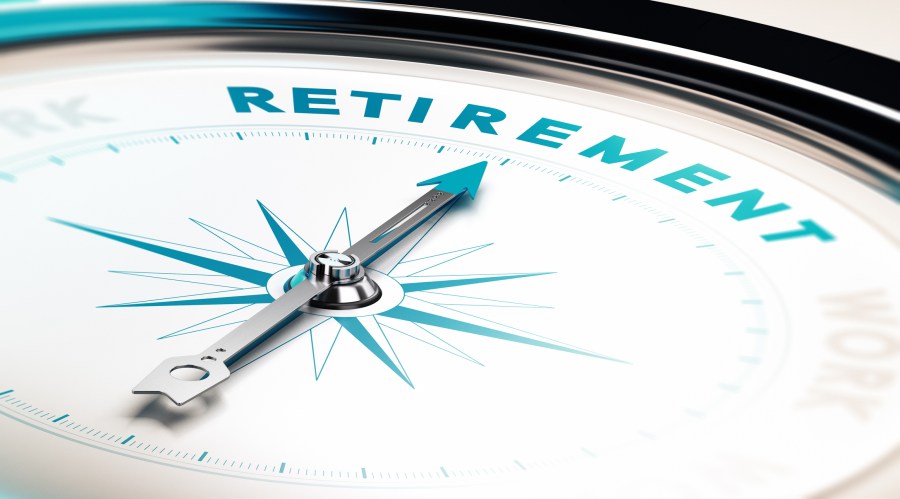Does Reptiles Continue to Grow in Size as They Age

Knowing the ideal age to start claiming your social security benefits can be tricky. The terminologies and processes are sometimes difficult to follow. And you could receive significantly less if you start claiming your benefits too early
If you live in the US, your full retirement age typically refers to the age at which you can receive all the Social Security benefits you're entitled to. Full retirement age (FRA) varies depending on the year you were born. To make things a bit more confusing, the age at which you can begin withdrawing from your retirement funds without incurring tax penalties may be different than your FRA according to the Social Security Administration . Finally, if you work for the government, your retirement benefits may kick in at different ages depending on your job.
Don't worry, though. We're breaking down the ins and outs of retirement as it relates to Social Security benefits, the IRS, and different careers. Read on to learn about when you'll be eligible for certain retirement benefits, and how to start planning for that day now.

The FRA bracket in the United States is between 65 – 67 years. This age bracket is the same for Australia, the United Kingdom and Germany. On the other hand, Indonesia, Russia and South Korea have a broader range which starts at 52 years. Other regions like Brazil, Canada, and China have a fixed FRA.
Since 1935, the Social Security Administration (SSA) set the full retirement age to 65. However, in 1983, citing longer life expectancies among older people, the SSA opted to extend the retirement age to 67. Rather than abruptly changing the age, they created a system to slowly extend the age from 65 to 67, incrementally increasing an individual's retirement age based on their birthday. It's often helpful to refer to the SSA's full retirement chart to determine where your retirement age lies, but here is a brief summary:
- If you were born between 1943 and 1954, your full retirement age is 66 years.
- If you were born between 1955 and 1959, your full retirement age progressively increases by two months from 66 years for each year starting at 1955. If you were born in 1955, your full retirement age is 66 years and two months, and if you were born in 1957 (two years after 1955, so four added months) your full retirement age is 66 years and six months.
- If you were born in 1960 or later, your full retirement age is 67 years.
Early Retirement
You don't have to wait for your Social Security full retirement age to stop working and begin claiming your benefits. Retiring early is also an option worth considering. The SSA allows anyone that is 62 years of age to start claiming their Social Security benefits.
However, if you retire early, the SSA will give you reduced benefits. The total amount you receive is reduced by a specified percentage per month while factoring in how many months you retired before full retirement age.
Generally, the earlier you retire, the less money you will receive in benefits. For example, if you retire five years early, you will receive as much as 30 percent less than what you would have gotten at full retirement age. Someone who retires three years early will receive more benefits than you but still less than what they would have gotten at full retirement age.
Late Retirement
The SSA also allows individuals to delay claiming their Social Security benefits until 70 years of age. When claiming benefits at that age, you could get as much as 132 percent of the monthly benefit amount you would have received at your designated full retirement age.
However, your benefit amount will not increase if you decide to postpone your retirement age beyond 70 years. So, it may not be worth delaying your retirement further to get more money.
The SSA calculates your Social Security benefits based on your highest indexed earnings over 35 years of work. So, you could delay claiming your Social Security benefits until the age of 70 if you started working later than your peers, or earned low wages during your earlier working years.
Before you determine whether you should retire and claim your Social Security benefits or not, calculate how much you will get each month. By creating an account and logging into my Social Security, you can use the online SSA calculator to help determine your benefits depending on age.
The calculator factors in all your earnings and provides various retirement benefit estimates. Then, based on the scenario you prefer, you can determine when to retire.
IRS Full Retirement

The Internal Revenue Service (IRS) defines full retirement age differently than the SSA. And this age determines whether you can enjoy the tax advantages offered by qualified retirement accounts when you withdraw your money.
Typically, the IRS designates 59.5 years as the age at which you can withdraw your annuities or pensions. If you withdraw your investment earnings before that age, you will likely pay the IRS's additional 10 percent tax penalty on early distributions.
There are exceptions to the rule. For example, based on the rule of 55, if you part ways with your employer after the age of 55 (meaning you quit or were fired, you can withdraw your 401(k) earnings penalty-free. And if you worked in a public-safety job, such as police force, EMS response, and corrections facility work, you can retire at 50 and enjoy similar privileges.
Benefits for Federal Government Employees

Noting the intense demands of some federal jobs, the federal government has defined full retirement age differently for different professions. Additionally, in roles that allow you to make contributions to Social Security and other pension systems, you are allowed to access your pension if you retire early. Your Social Security benefits will still only kick in when you reach full retirement age.
Currently, the federal minimum retirement age stands at 57 years for employees born in 1970 or afterward. However, different public departments set their own rules concerning when their employees can retire and under what conditions they will receive full retirement benefits. These benefits include Social Security benefits, the Federal Employee Retirement System (FERS) pension, and tax-advantaged retirement account investments. How much you receive in benefits each year depends on how much you earned and contributed, as well as how long you worked.
Suppose you work in the federal government as an air traffic controller. In that case, the Federal Aviation Administration (FAA) sets the mandatory retirement age at 56, which is six years before the early retirement age. That's because it is a high-pressure job. You can retire even earlier if you have completed at least 25 years of service.
After you have worked for at least 20 years within the federal government, you will access some federal benefits to help you pay your bills until you can access Social Security benefits. However, the formula that is used to calculate your benefits depends on what year you started working and the retirement system you are categorized under.
For law enforcement officials, the full retirement age is 57 years. You'll need to retire at an older age if you started working later, but can retire as soon as you complete 20 years of service. On the other hand, if you started working earlier and complete at least 25 years, you can retire before the age of 57.
If a federal position requires retirement before 62 years of age, the federal government provides a supplement or pension to help fill the gap until Social Security benefits begin. The amount you get depends on which payment system you are under and your highest income while working.
For example, if you work under the Federal Employee Retirement System (FERS), the three highest consecutive annual incomes (basic pay) you earned during your career are averaged. Then the system will multiply that by 1.7% and 20 years of work. So, if your three highest annual incomes averaged $50,000, your annual benefits accrued over 20 years would be $17,000 per year.
In addition, for anything over 20 years of service, you will also get an additional 1% of the averaged three highest annual incomes, multiplied by the number of working years above the first 20. For example, if you worked for 25 years, and the average of your three highest annual incomes is 50,000, you would earn an additional $2,500. So your total annual benefits would be $19,500.
Private Retirement Benefits
The private pension system is usually funded by employee and employer contributions to qualified and non-qualified accounts. From there, it earns interest over time.If you retire early, you can withdraw your money from these accounts without penalties so long as you meet the IRS withdrawal criteria. These retirement funds can help you live comfortably until you are old enough to get Social Security benefits.
Source: https://www.askmoney.com/investing/when-is-my-full-retirement-age?utm_content=params%3Ao%3D1465803%26ad%3DdirN%26qo%3DserpIndex&ueid=be65a0f8-d828-47e9-9872-9072d0ef8915
0 Response to "Does Reptiles Continue to Grow in Size as They Age"
Post a Comment